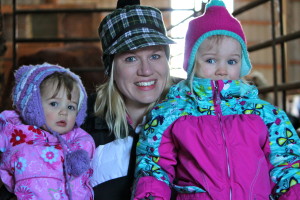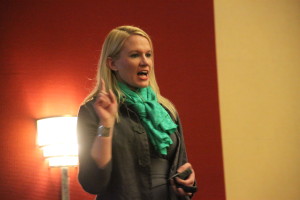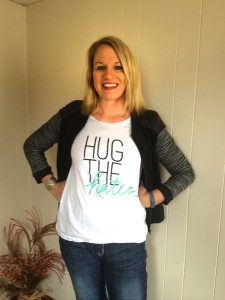Tonight I’m kicking off April by speaking and sharing with a community volunteer group in Jamestown, North Dakota about election advocacy. They asked me to speak on this topic and for a moment I questioned myself if I could speak on it. To organize myself and help me find my voice, I put together seven things I have learned and steps to take to be an issues advocate. You will find them below.
What are my credentials to speak and share on this topic? None, other than I have worked in grass-roots way to share about issues I care about and ones that sometimes impact elections.
I’ve never held public office or run for public office. I’ve never chaired any political committees and rarely attend an election related fundraiser. But through my adult life I have decided to choose my causes and passions and when feeling called to stand up for them, I do.
It is easier most days to sit back, complain, vent your problem with an issue or topic on Facebook, rant to your fellow community members over coffee or fester in your frustration in solitude.
But it doesn’t create conversation for true change you are seeking through policy or law. Therefore, as much as I tend to have an opinion about anything, I try not to share about everything.
I stick to my greatest passions and what I know best, learning from others about their expertise and passions and growing my perspective and insight.
 Food and agricultural issues from my fifth-generation family farm to agriculture marketing career are easiest for me to take on. Truthfully, I feel safest taking on these issues and advocating for agriculture. I have done it for long enough that I have the most confidence and willingness in this area of issues advocacy. Food and farming understanding helped me to speak out on school lunch changes and became a constant topic to advocate for and one a group of friends worked to build awareness and community around. When it comes to issues advocacy, I am most comfortable sticking close to what I know best: food and farming.
Food and agricultural issues from my fifth-generation family farm to agriculture marketing career are easiest for me to take on. Truthfully, I feel safest taking on these issues and advocating for agriculture. I have done it for long enough that I have the most confidence and willingness in this area of issues advocacy. Food and farming understanding helped me to speak out on school lunch changes and became a constant topic to advocate for and one a group of friends worked to build awareness and community around. When it comes to issues advocacy, I am most comfortable sticking close to what I know best: food and farming.
 But then sometimes, I rise up to step outside of my comfortable place. It makes me uncomfortable and a sick feeling fills my stomach. But I feel called to share, for my family, for my kids, for my passions and for others I don’t know but know they are struggling or can’t share their voice.
But then sometimes, I rise up to step outside of my comfortable place. It makes me uncomfortable and a sick feeling fills my stomach. But I feel called to share, for my family, for my kids, for my passions and for others I don’t know but know they are struggling or can’t share their voice.
I have advocated for five years on the need and importance of early childhood education in our public schools. Once in a while, I speak about choosing to have a baby at age 18 and the difficult decision that it was. Last fall, I shared my perspective on Measure 6 in North Dakota, a shared parenting initiative that thankfully failed at the polls with nearly two-thirds voting no.
When my son, Hunter and I saw in mid-October that the “yes” vote was leading in polls and 27% of voters remained undecided on Measure 6, I wrote down my perspective and shared parenting experience on my blog, submitted it as a letter to the editor to area newspapers and started reaching out to like-minded people about Measure 6 about why I was advocating a no vote. I was asked to speak on a local election panel at our school.
But I never set out to be a Measure 6 Advocate or any type of election advocate. I became one when I found my voice to speak out on issues I care about and have experience with directly.
I learned speaking up on family related election issue causes a greater stir than speaking up on food choices or agriculture biotech issues.
My goal on speaking out on Measure 6 was to create attention towards why this would be detrimental to families and to encourage a no vote. It was not about me and therefore, I didn’t share every detail of my story. The vote to me was about kids and families. I used part of my story to highlight my reasons for a no vote.
I speak on my story at events and I knew later, post-election, it was going to be shared in a on the minds of mom’s magazine feature, Accepting Interruptions. This past month, I turned that title into a new keynote presentation and stepped out with a greater confidence to speak about the details of my story to women’s groups.
Becoming an election and issues advocate gave me greater confidence to find my voice.
What have I learned about election and issues advocacy?
- Tell your own story and experiences, not someone else’s.
- Relate your experiences and how it impacts the specific issue.
- Build community around your issue. Your story is just one tiny piece of the puzzle. You need an army to carry the message to create change. Reaching out to liked-minded others and friends help build community and attract positive attention to the issue.
- Create content. Facebook statuses won’t change the issue, in my opinion. But sometimes it’s easier to just “Facebook” about an issue. Create content whether it be on a blog, in a YouTube video or in a letter to the editor and share your content with your community. Ask them to share it. Content can change a conversation, and a vote.
- Get offline. Online content and conversations are important and a part of the election and issues advocacy. But you need offline, face to face conversations, media interviews, events and personal interactions to impact voters and people to create change on an issue.
- Dig deep ditches, meaning knowing your story and issue and stay on the straight high road. The detractors will try to pull you down into the ditches and weeds, to get you off topic or lose focus on the issue. But if you stay on the high road, the detractors stay in the deep ditches.
- Hug the haters. We can disagree on the issues but that doesn’t mean you have to be rude, condescending or show hatred. I choose purposefully to be kind to those who even disagree with me. I even have a shirt to remind me I am called in my faith to Hug the Haters and truly show them love instead of hate. We can all disagree on issues and still, believe it not, be friends and work together for other causes in the future.
 How are you finding your voice? What are roadblocks you find? Positive experiences you’ve had from stepping out to share? I’d love to hear from you.
How are you finding your voice? What are roadblocks you find? Positive experiences you’ve had from stepping out to share? I’d love to hear from you.
You also can connect with me on Twitter, Instagram and Facebook.
I love this article!
I am a 4th generation farmer/farmwife and excited that my children will be 5th generation farmers. This have been a HUGE topic at my house lately. After having friends in our sunday school class tell us we don’t raise grass fed beef. I was told by another couple in our class that since we are modern farmers that it was like eating at McDonald’s, just because you can eat there everyday doesn’t mean that you should. I’ve had some real issues maintaining these friendships. I’m the Education Chair for the Missouri Cattlewomen and feel that God has been pushing me for the past 2 years to start a blog. I just keep swatting him away like an annoying fly that won’t leave you alone. The more I swat the more things get put in front of me on why I need to tell our story. Why I need to show people that as a farmwife and farm mom we do everything so that one day our children can also farm.
I love following your blog!
My favorite thing I’ve read yet! I have just recently, without meaning to, found myself as the lead advocate in education legislative policy chamhe in Arkansas. I have held no offices either, but have been asked to. I prefer to stay, as of now, an unbiased advocate for the changes needed in my heart. Thank you for this great article!